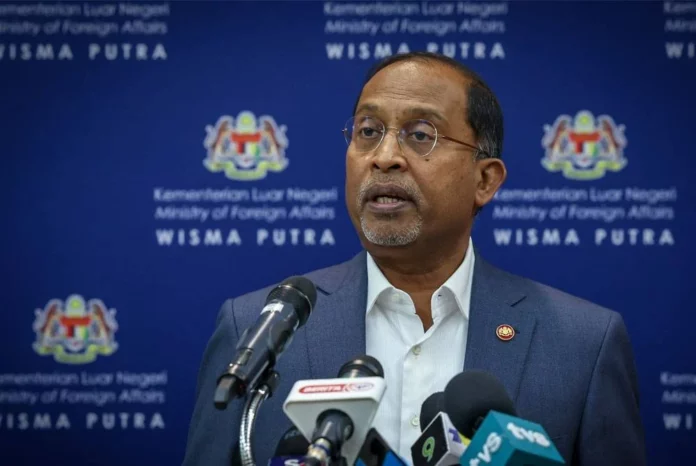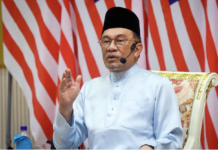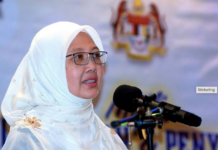PUTRAJAYA, July 2 — Foreign Minister Datuk Seri Dr Zambry Abdul Kadir will pay an official visit to Kyrgyzstan and a working visit to Uzbekistan for two days starting Monday.
Zambry in a statement on Sunday said he will next go to Baku, Azerbaijan to participate in the Meeting of the Coordinating Bureau of the Non-Aligned Movement (CoB-NAM) at the Foreign Ministers level from July 5 to 6.
In Kyrgyzstan, he will hold a meeting with his counterpart, Zheenbek Kulubaev, in addition to paying a courtesy call on the country’s President Sadyr Zhaparov, Speaker of the Parliament Nurlanbek Shakiyev and Chairman of the Cabinet Ministers Akylbek Zhaparov who is also the Prime Minister of Kyrgyzstan.
During his visit to Uzbekistan, Zambry will meet his counterpart, Bakhtiyor Saidov.
During the two visits, he together with his counterparts will sign a Letter of Intent on Bilateral Cooperation between the Foreign Ministry of Malaysia and Kyrgyzstan; and the Cooperation Programme between the Foreign Ministry of Malaysia and Uzbekistan.
“This agreement marks progress in bilateral cooperation which will lead to a more comprehensive partnership between Malaysia and the two countries via trade and investment, education, tourism and technical cooperation.
“I am confident that this visit will give new impetus to bilateral cooperation that reflects Malaysia’s commitment in strengthening and elevating relations with these Central Asian countries to a higher level,” said Zambry.
Regarding the CoB-NAM meeting, he said it would give the NAM foreign ministers an opportunity to discuss matters related to the movement and the meeting was also expected to adopt the Baku Declaration as well as the Declaration on Palestine.
He will deliver Malaysia’s statement which focuses on the theme “NAM: United and Steadfast in Confronting Emerging Challenges.”
“In addition, I will also hold several bilateral meetings with my counterparts to discuss measures to improve bilateral relations and exchange views on international issues,” Zambry said.
Malaysia recognises NAM as an important forum for consultation and coordination among developing countries, addressing important political, security, economic and social issues.
















